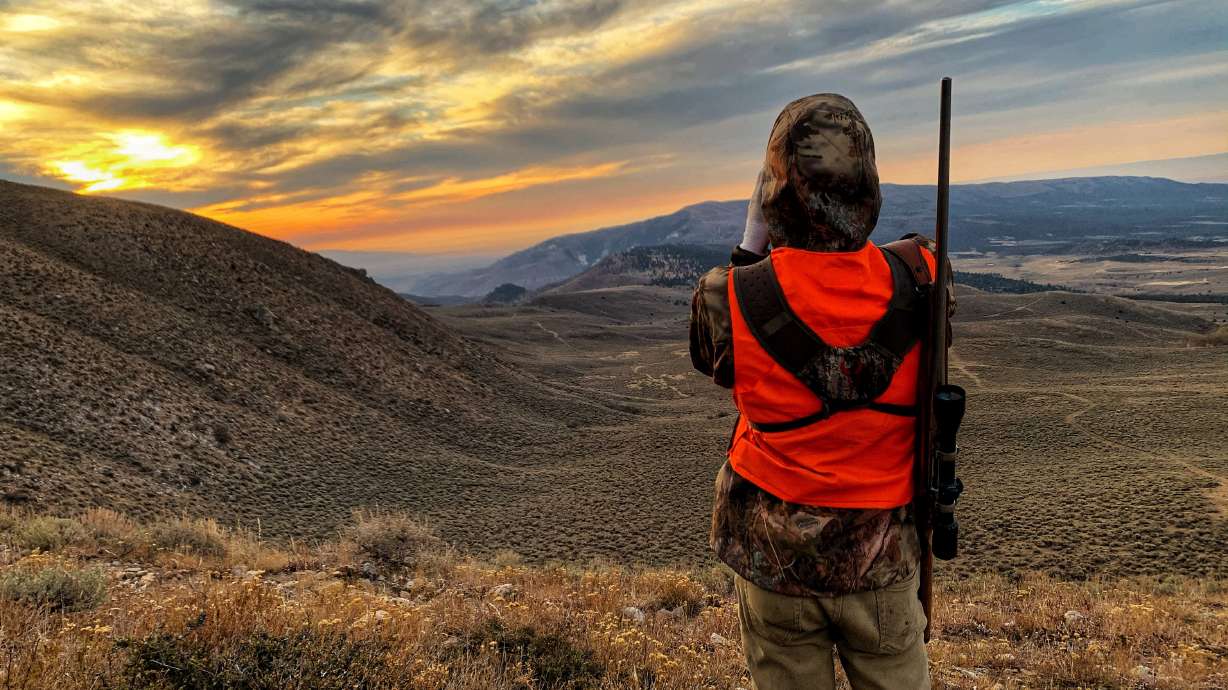Estimated read time: 4-5 minutes
This archived news story is available only for your personal, non-commercial use. Information in the story may be outdated or superseded by additional information. Reading or replaying the story in its archived form does not constitute a republication of the story.
SALT LAKE CITY — Utah lawmakers handled plenty of outdoor-related bills during this year's legislative session.
They designated new state monuments and tweaked various hunting rules.
That includes HB382, sponsored by Rep. Casey Snider, R-Paradise, which heavily focuses on shed hunting — an activity in which people search for the antlers or horns big game animals naturally shed in the late winter and early springtime. Over 20,000 people participate in the activity every year, according to state wildlife officials.
The bill authorizes the Utah Wildlife Board to establish seasonal dates and rules for gathering, including license or permit requirements for commercial gathering. Private property owners can collect any antlers shed on their property at any point of the year regardless of changes.
However, it also cleans up other aspects of the state's wildlife laws. For instance, it makes tweaks to poaching laws, switching to an aggregate point value to determine the severity of cases. It also raises the restitution penalty fees in poaching cases as follows:
- What was a $30,000 penalty per trophy desert or rocky mountain bighorn will now be $45,000.
- What was $8,000 per trophy deer or elk will now be $12,000.
- What was $6,000 per trophy moose, mountain goat and bison will now be $9,000.
- What was $2,000 per trophy pronghorn antelope will now be $3,000.
- Under the current law, nontrophy species can range from $5 to $1,000 per animal, depending on the species; the fee will now range from $8 to $1,500.
Snider said the changes reflect the "forces of inflation," during a long-winded speech about the bill on the House floor Friday night before the bill passed.
"Poaching is a serious issue in this state," he said. "Yet under existing state code, those restitution values were insufficient."
State fiscal analysts estimate that all of the changes, set to take effect on July 1, may result in $860,000 in new ongoing revenue toward an account dedicated to wildlife finances.
Hunter orange changes
Utah lawmakers passed another interesting hunting-related bill this year: HB222. Sponsored by Rep. Stephanie Gricius, R-Eagle Mountain, the bill modifies the state's requirement to wear orange while hunting.
The new law will clarify that someone must wear at least one item of orange on their outermost layer of clothing, Gricius explained in a committee meeting last month. That could be a hat, sweater or shirt. It replaces a current law she said could be confusing, including technically allowing hunters to wear orange that isn't visible — a potential safety hazard.
It also states that nonhunters would be required to wear orange on Utah Division of Wildlife Resources-managed land during hunting season. Justin Shirley, the division's director, said this issue would be applied in "very limited" scenarios.
There are also some changes to big game "byproducts" tucked into the law. Gricius explained this would allow parts of animals to be turned into pet food instead of being thrown away, along with increased chronic wasting disease testing.
Other outdoor-related bills
Utah lawmakers also passed a handful of other bills tied to outdoor recreation over the 45-day session, such as HCR8 and SCR6, which create Butch Cassidy and Golden Spike state monuments.
Most of the other bills address technical concerns:
- HB360 allows the Utah Division of Outdoor Recreation to accept private donations, funding or volunteer work to build new or maintain existing recreation infrastructure. HB23 extends the division's boating advisory council from 2024 to 2029.
- SB108 transfers oversight of the State Parks Honor Pass Program to the Utah Division of State Parks from a board that's being dissolved. It also creates a one-year pilot program that lets military lifetime pass holders for national parks access to Utah state parks.
- HB469 creates a new law enforcement division within the Utah Department of Natural Resources, adjusting the current law enforcement structure.
- HCR11 encourages governments, private businesses and community groups to consider ways to enhance recreation opportunities while also improving other demands tied to Utah's population growth.
- HB120 corrects an oversight within the Utah Division of State Parks restricted account. The change allows the division to keep any interest incurred on the account, which serves as the division's annual budget.
- SB20 extends the sunset date of the Agricultural and Wildlife Damage Prevention Board from July 1, 2024, to July 1, 2034.










